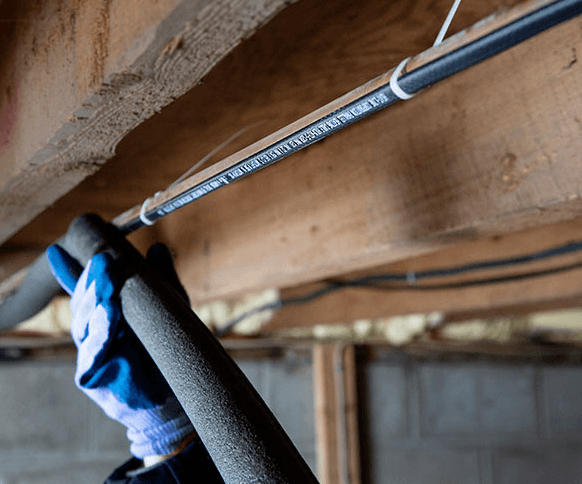Winterize Your Pipes With These Tips
As the temperatures drop, it can become increasingly difficult to maintain a successful farming operation—frozen pipes are just one of many problems that need to be carefully managed for your farm and its assets to flourish during the winter season.
As winter quickly approaches, farmers need to know how to protect their pipelines from extremely cold temperatures that can cause cracks or blockages, leading to costly repairs or even total replacement of parts and systems. Read on as we explore practical tips on keeping your livelihood safe by protecting your pipes during a hard freeze.

Dealing with a Freeze
It’s a cold afternoon, and you try to open your faucets to hydrate your livestock, but no drop comes out. Your pipes might be frozen cold! Don’t worry. Here are some tips for dealing with this situation:
- Open the faucet and leave it running. Once you locate the frozen region, let water flow; this will help melt away any ice that has restricted the pipe’s functionality.
- Remember to examine any pipes that may be prone to freezing, including those in uninsulated basement areas, exterior walls, attics, and crawl spaces.
- Once you have identified the frozen pipe, it’s time to get busy melting the ice build-up. Targeting the affected region with warmth will do the trick – apply heat using a hair dryer, an electric heating pad, a space heater, or hot water towels until your water starts flowing again.
- If you’re already facing a burst pipe emergency, turn off the water supply at your home’s main shutoff valve to minimize damage and avoid costly repairs.
What Are The Best Solutions?
Protecting pipes from winter is easier than it sounds. Here are some simple and smart DIY ideas:
- If you’re heading out of town this winter, keep your home’s thermostat no lower than 55°F. Doing so will ensure that when you return, the pipes in your house remain intact and unharmed by bursting or freezing!
- During frigid temperatures, trickling water from an outdoor faucet may be the difference between frozen and thawed pipes. Also, leaving cabinet doors open underneath sinks can provide warmth to nearby pipelines that could otherwise freeze over.
- Insulate your pipes with foam rubber or fiberglass sleeves to protect them from extremely cold temperatures. Water pipe insulation is important for outdoor and basement pipelines, as insulation adds an extra layer of protection against icy conditions.
Winterize Your Pipes With Fix & Feed Hardware Store In Texas
Fix & Feed Hardware Store in Texas is a one-stop shop for all your farm needs. With four locations in Texas, we strive to provide the best quality products and solutions for house pipe insulation. Our team of experienced professionals is dedicated to helping farmers find the right products and services that fit your individual needs and budget. Whether you’re looking to prevent pipe freeze-up or make necessary repairs, our experts will help you. With Fix & Feed, you can trust that your pipes are in safe hands this season.
